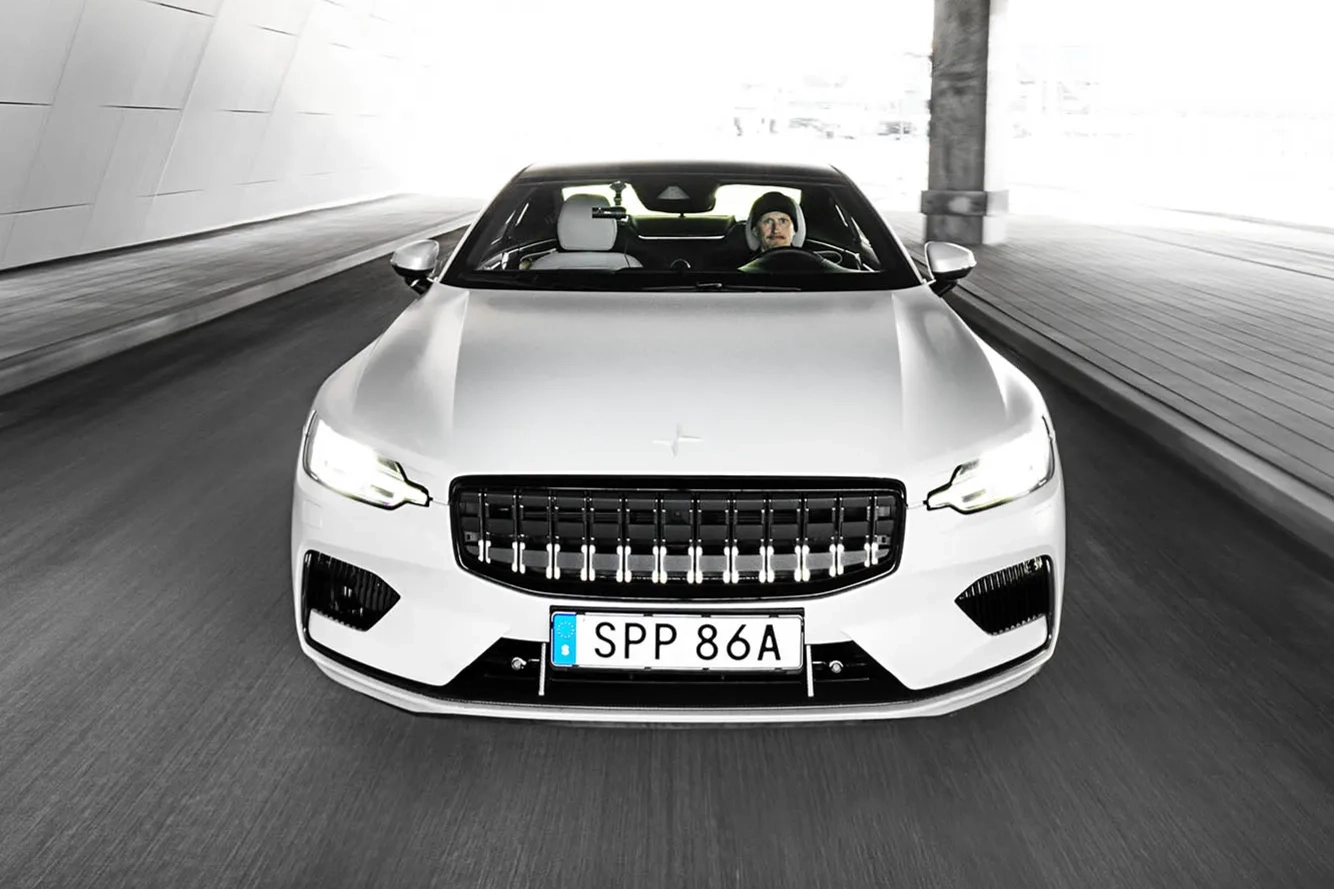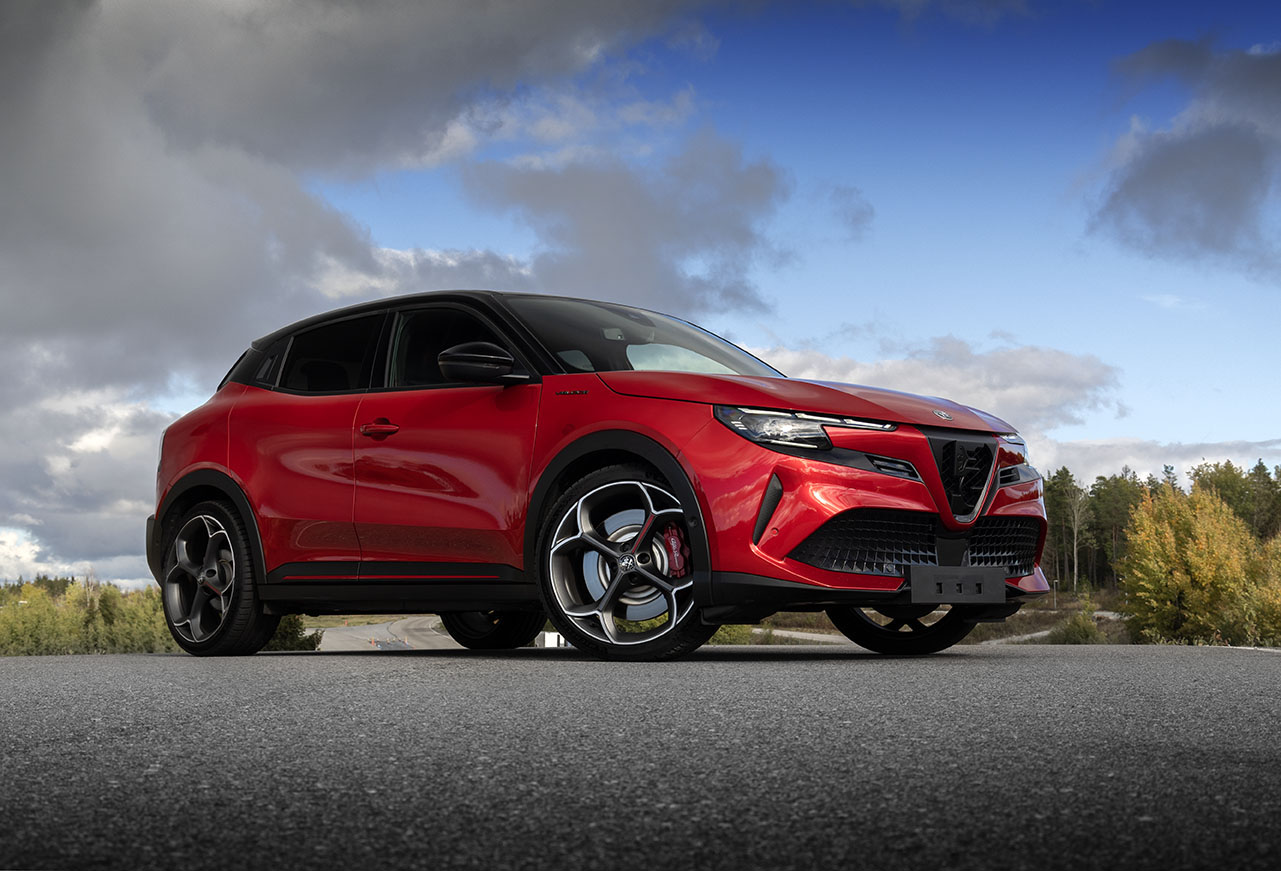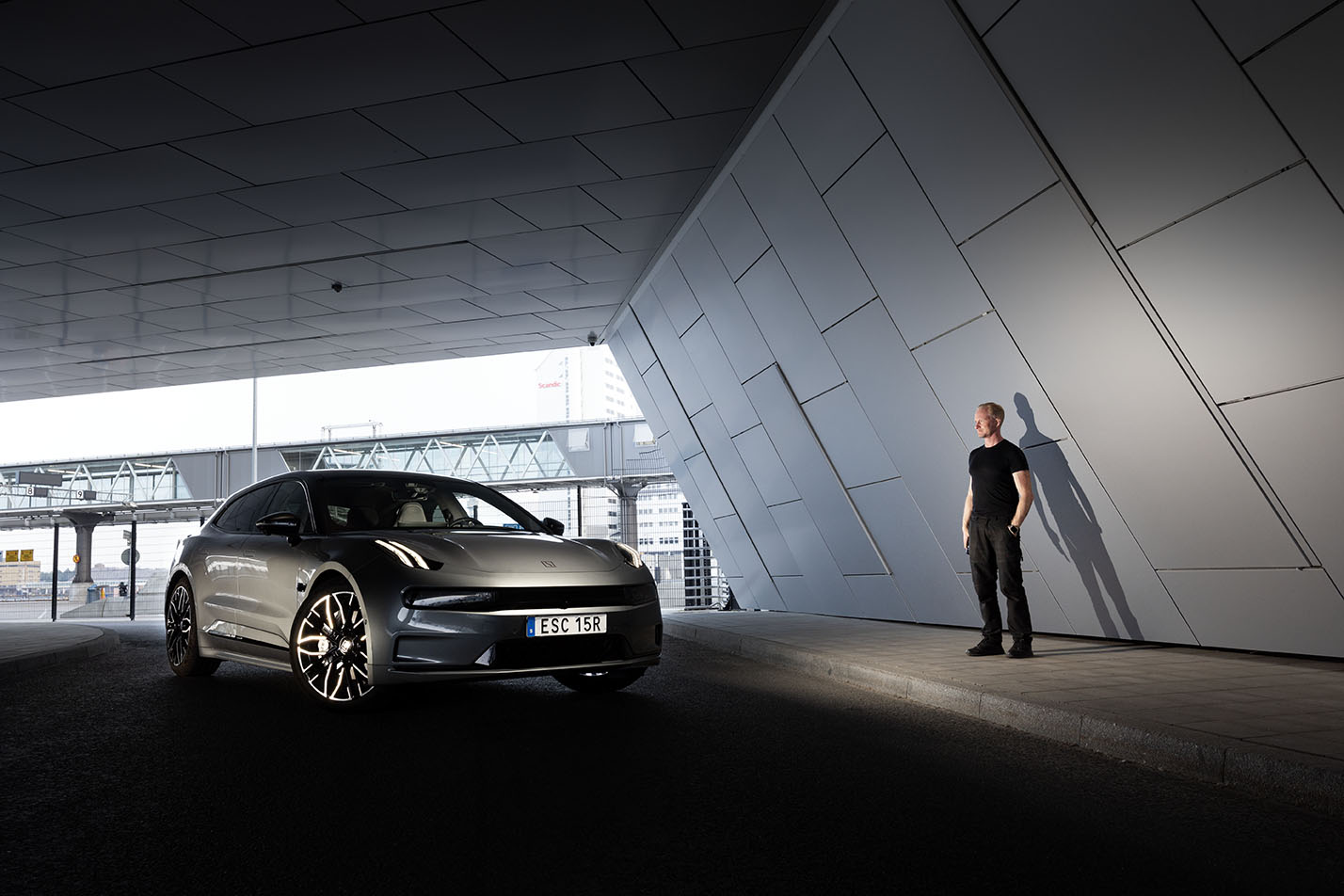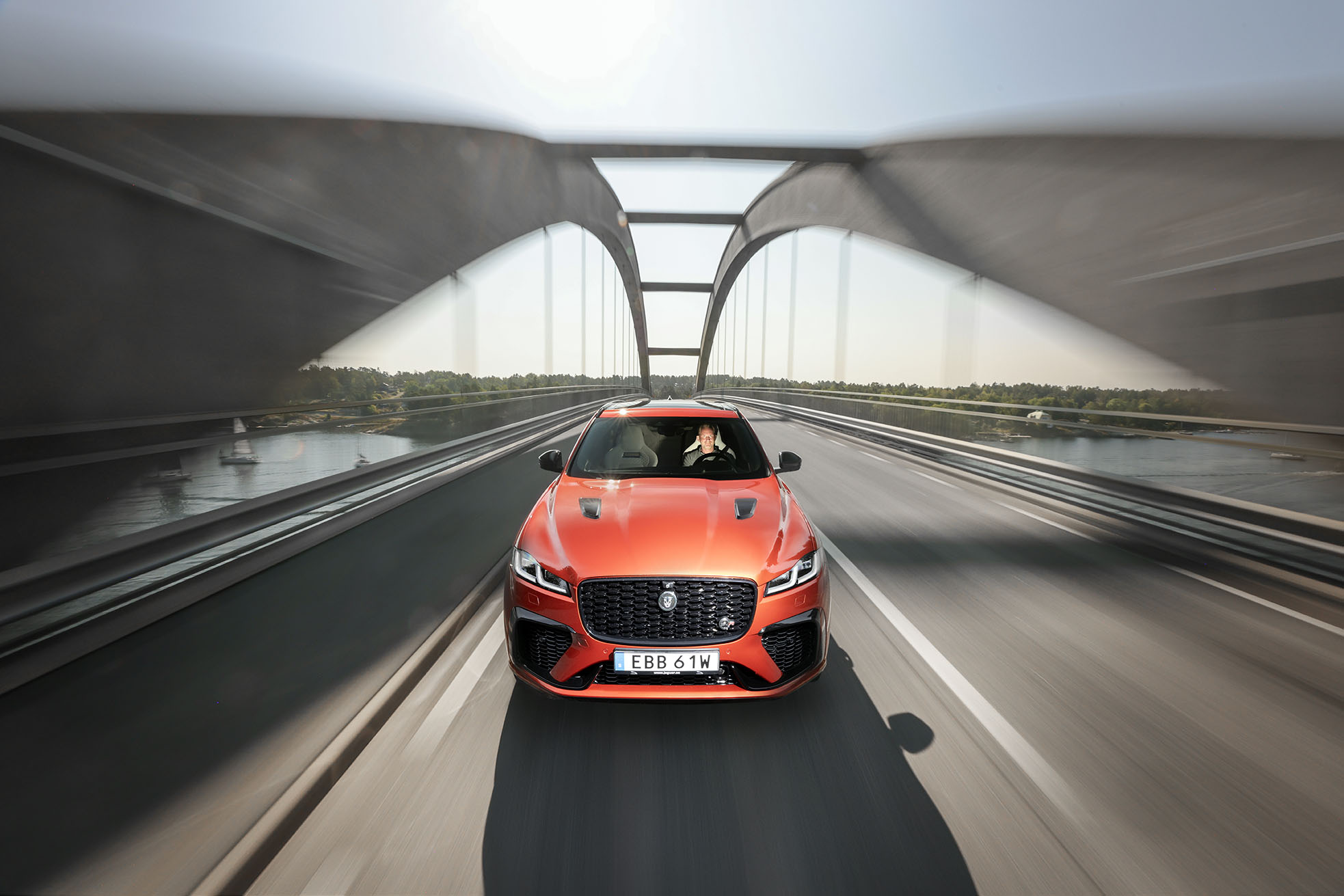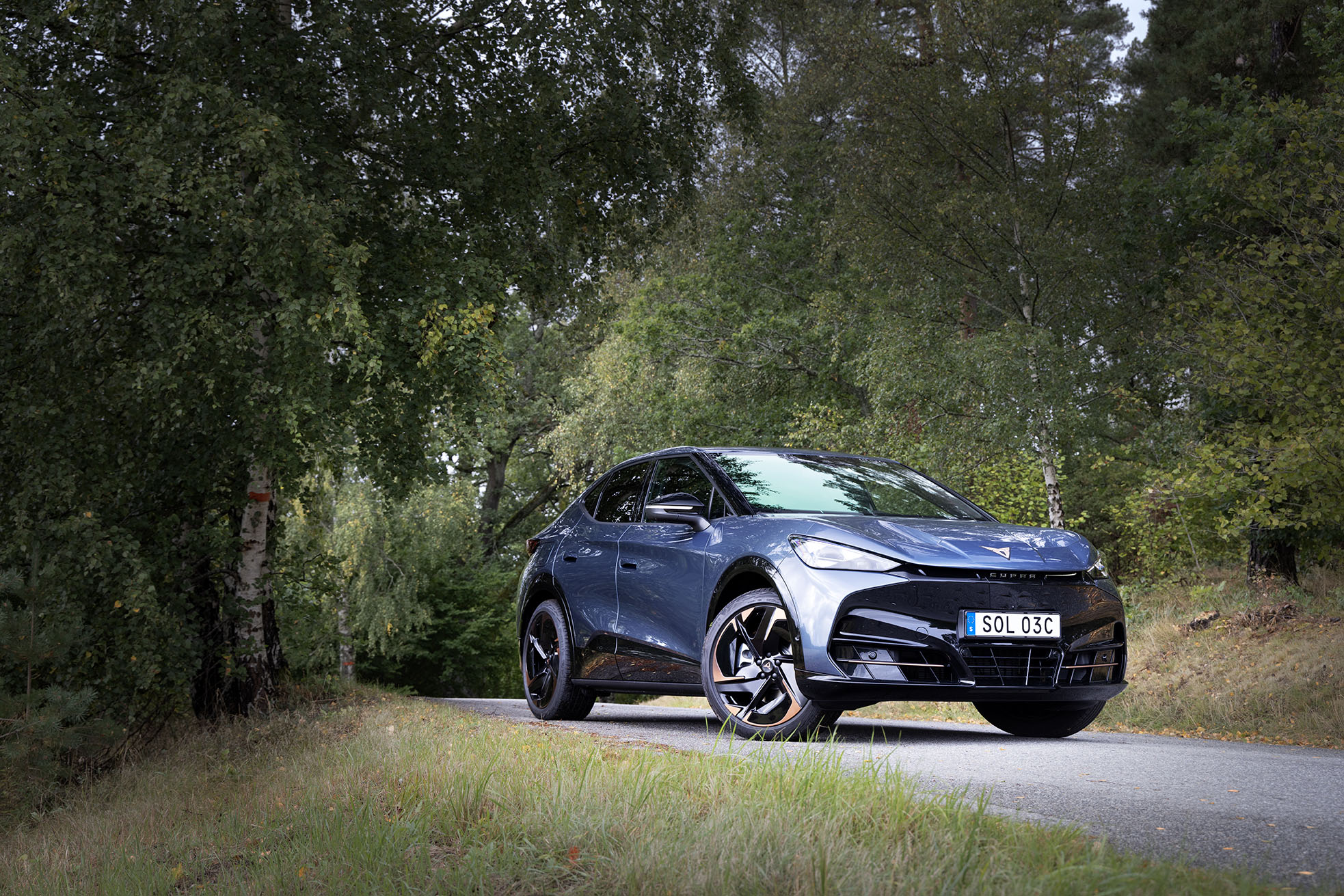The article was originally produced on June 4, 2020, some facts and prices may have changed since then.
This car has been talked about for a long time and now I finally have the opportunity to drive the Polestar 1!
Few cars I've driven have attracted as much attention in Sweden as the Polestar 1. Especially from middle-aged men. It is a beautiful creation to admire. The shapes are inspired by Pelle Petterson's design of the classic P1800. It was seven years ago, in 2013, that Volvo Concept C was shown. At that time, I was hired by Volvo to take pictures of the concept, pictures that would be used internally and as press pictures. The Volvo Concept C is basically the same car as the Polestar 1 today. The biggest difference is that the slanted Volvo emblem in the grill has been replaced with a Polestar star on the hood.

Polestar was founded in Gothenburg in 1996 and was initially an external tuning company
But we ignore the emperor's new clothes and dive into what has actually been done with the Polestar 1. It is a so-called plug-in hybrid. So it is not a fully electrified car that is the idea with Polestar in the long run. The new Polestar 2 model, however, is fully electrified and lacks a combustion engine.
The driveline in the Polestar 1 is a four-cylinder gasoline engine with 308 horsepower in combination with two electric motors. A front one of 68 horsepower and two rear ones of 116 horses each. The total system output is 609 horses with a torque of a staggering 1,000 newton metres. On paper, there is power so it is enough to get over in the Polestar 1!
Polestar was founded in Gothenburg in 1996 and was initially an external tuning company with a focus on optimising Volvo models. A trained eye could spot a Polestar-optimised Volvo thanks to the cyan blue badge next to the model emblem on the back of the car. A number of acclaimed concepts were presented and later a couple of pure Polestar versions of the S60 and V60 were also produced.


As an official motorsport partner for Volvo, from 2009 it also took care of the racing efforts in the STCC and WTCC. The successful team included drivers such as Thed Björk and Prince Carl Philip. For a couple of years I worked as a court photographer for the team and got to experience several fantastic races and victories.
Like Toyota and Lexus, Volvo has allowed Polestar to become its own brand where prestigious innovative models are to be produced
In 2015, Polestar was sold to Volvo Cars and the racing department changed its name to Cyan Racing. It is now the official motorsport partner of Geely, which is the main owner of Volvo.

Like Toyota did with Lexus, they have now split Volvo and Polestar and let the latter become its own brand where prestigious innovative models are to be produced.
In 2017, the Polestar 1 was shown in its own form and without the Volvo emblem in the front. The model will be built in a limited edition of 500 copies and the production will take place in Chengdu in China.
If you want your Polestar 1 in the matte white paint with an ounce mother-of-pearl effect that the test car was painted in, you must be prepared to pay extra for this. SEK 50,000 to be exact.

It is clear that a lot of time was spent on the details. As an example, the image of the car in the instrument display is the same colour as the real one, and to mark who is wearing a seat belt and who is not, those in the screen are also the same colour as the real thing. In the case of the test car, yellow. But some details seem unfortunately to have been forgotten. If the idea was that you would miss seeing the sloppy edge of the tailgate thanks to the visible and awesome electrical package that becomes visible when the hatch is opened, it must be left unsaid. Apart from this, however, the overall feel is well thought out and there is much to appreciate both interior and exterior.
In the Polestar 1, the range of electric drive is longer than most plug-in hybrids. If you drive as the manufacturer wants, it should last 15 miles on electricity. There are many settings for how to drive the Polestar 1 where pure electric is one and sporty with full power is another. You can also set the car to be permanently four-wheel drive. If you would rather use electric drive in the city, you can "save" on power and let the car be driven with the internal combustion engine there. You can also charge the battery using the engine while driving.
An advantage of the Polestar 1 is that you can charge it in fast chargers with a CCS connector. Then you get a full charge in just over 30 minutes.

You start the Polestar 1 like other Volvo cars through a knob on the console between the seats. Then you pull the gear selector in Orreforskristall back to put it in Drive. If the battery is charged and you have not selected performance mode, the car creeps away.
When you press the gas pedal to the bottom, all 609 horses come to life. Despite all the stilts, this is no rocket. With a German station wagon, which you will soon read about fresh in your memory, the acceleration feels a little sleepy. The Polestar 1 accelerates from 0-100 km/h in 4.2 seconds compared to 3.6 for the German family hatchback.
It is noticeable that an effort was made to fine-tune the chassis of the Polestar 1
You can tell that effort has been put into fine-tuning the chassis of the Polestar 1. On the masked test car I saw rolling at the 2018 Goodwood Festival, tens of thousands of miles have been put into optimising the powertrain and chassis. It feels, the car behaves well regardless of whether it is about high speed forward or on curvy roads. Among other things, Öhlins has been involved in developing the chassis. The tyres come from Pirelli, who were also involved in the production.

After a week with the Polestar 1, I can state that it is a car for those who want Swedish design and engineering. You will attract attention wherever you drive because even when the car gets old it will be unique thanks to its limited edition. You will have fun behind the wheel, but if driving pleasure is most important, you may want to look at other cars. You probably back away from an impulse purchase when you see the price tag.
But an increased price tag signals that this is not a run-of-the-mill car. A Polestar 1 deserves a proud and devoted owner who knows how to appreciate its full potential.
Polish 1
| Award | SEK 1,699,000 |
| Engine | 2-litre straight four-cylinder, 308 hp. 3 electric motors 300 hp. Total power 608 hp. Torque 1,000 Nm |
| Transmission | Combustion engine at the front plus an electric motor and two electric motors at the rear, 8-speed automatic, four-wheel drive |
| Acceleration | 0-100 in 4.2 seconds |
| Top speed | 250 km/h (Limited) |
| Fuel consumption (NEDC) | Mixed driving (weighted) approx. 0.21 l/mile. CO2 (weighted) approx. 50 g/km. Range NEDC 15 miles, WLTP 12.5 miles |
| Weight | approximately 2,350 kg |
| Guarantees | New car 2 years, carriage damage 3 years, rust protection 8 years, paint 2 years, assistance 3 years |
| Web | www.polestar.com |
